Ruthless Fae (Zodiac Academy #2) by Caroline Peckham & Susanne Valenti

My god, why do I keep reading these books. I was really hoping for a bit of an improvement from the first book, but that just didn’t happen. If anything, the ridiculous extremes from the first book magnified here. The heirs are still dicks, only now they are just that much more dickish! The poor Vega twins are still rattled and confused and slide right into their victim roles despite showing slight sign of the toughness and independence they claim they are based in.
I think what bugs me the most about this series is the pacing. I churn through loads of pages, but barely any time passes, and nothing really goes on. Half of this book could have ended up on the editor’s floor (I’m making a bold assumption that there was an editor at all), and the story would have been unaffected.
Ahh, but this book does have something that the first doesn’t: more violence against women, more role manipulation, more racism, and more inappropriate posturing.
I honestly don’t know if I’m going to be able to make it through this entire series. If it wasn’t for the other books that I’m reading concurrently, I would have already abandoned this folly. At this point, I guess all I have to look forward to is seeing if it’s the Vegas or heirs who crack first, and to see who dies (someone better die).
Lightfall (The Everlands Trilogy #1) by Ed Crocker
** This book was provided to me by St. Martin’s Press & NetGalley in exchange for a fair and honest review **
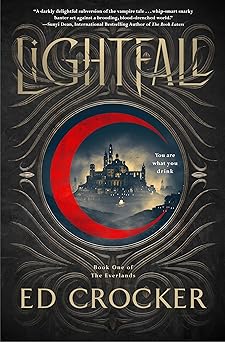
Lightfall is a book about vampires, werewolves and sorcerers. In fact, it might be the most innovative novel about vampires, werewolves and sorcerers that I’ve read in decades, and I do not say that lightly.
Mr. Crocker has managed to create a world of immortals and make the reader worry about their humanity. This book really tilts everything with its politics and hierarchy plays. That this is Mr. Crocker’s first novel is even more amazing. Some authors just have the gift right out the gate.
The city of Lightfall is a fallback haven for the vampires who were basically chased out of their primary city of First Light by the very mysterious Grays. Blood determines the rules, and if you are nobility, you have access to the powerful blood, and if you are a worn, you get basic stuff that causes you to show age over time. Nobody leaves Lightfall in fear of being killed by the Grays.
One problem, though. The city’s ruler’s youngest son is murdered, and by some ingenuity, and a lot of luck, palace maid Sam finds the only substantial clue. What entails pulls in a magic-less sorcerer cult, an apex predator werewolf, and a whole lot of mystery and intrigue.
This book is super high on my best books of the year list, and it doesn’t even come out until January 2025! The way Mr. Crocker has written each character’s point of view is masterful, and the worldbuilding is absolutely top notch. It’s been a very long time since someone brought something this dynamic to the genre without it falling back on cliche. This is a novel that came to me out of left field and I could not be happier.
Let me just tell you that the last quarter of Lightfall is an insane roller coaster that had me guffawing and gasping with each turn of the page. I absolutely cannot wait for book number two, and I will be giving many friends “raincheck” Christmas presents so I can get this in their hands come January.
The Awakening (Zodiac Academy #1) by Caroline Peckham & Susanne Valenti
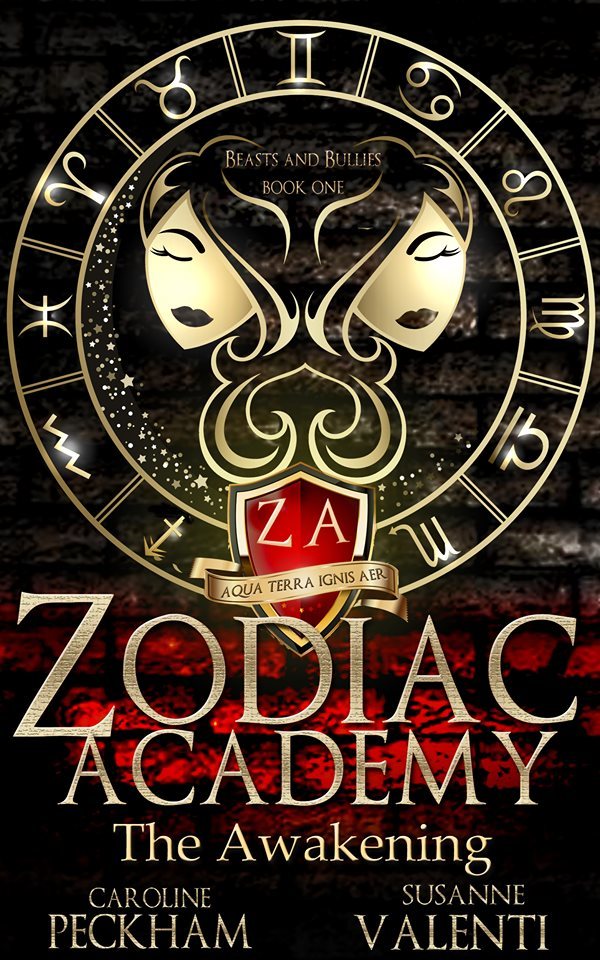
I am reading this series because a very dear friend of mine suggested I check them out. She warned me that they would probably make me angry — she was correct — but I’m going to get through this drivel if it kills me.
Darcy and Tory Vega are twins who were apparently swapped with human children by their royal Fae family as babies to protect them. Now that they have been found by the Fae, they return to that realm to learn to tame their fantastic powers at the Zodiac Academy. The thing is, though, there are four ruling houses headed up by “The Heirs” who will take control of the realm since the ruling family was gone. The twins’ return threatens that. Broody hilarity ensues.
I guess I should start out with what I find wrong right off the bat. First, off, the girls have their Fae names of Gwendalina and Roxanya. Nobody ever questioned which one was which, and that drives me bonkers.
Second, “The Heirs” are total jerks, but Tory and Darcy go between loathing and loving them. This books rife with situations where one of the twins is being literally tortured, but oohing and aahing over their torturer’s chiseled abs or plump lips. It’s maddening to me.
There is some intrigue that I find interesting. Yes, the twins are overpowered and, per the formula, don’t have control of their powers. In fact, they don’t even know what “Order” of Fae they might be. I imagine that will pop up in an important passage in a later book. I also did appreciate that Ms. Peckham and Ms. Valenti set these characters as a tad older than this typical fare from other authors. It made some of the situations and experiences a tad more plausible.
The one thing that bugged me the most was how rapey everything surrounding “The Heirs” is. I mean these guys are on a serious power trip, and it always seems to go threateningly sexual. Can’t they just be mean?
Yes, I’m in for the long haul with this series just because there has to be some sort of redemption arc somewhere in there. If not, I’ll roast more of them.
House of Bone and Rain by Gabino Iglesias
“All stories are ghost stories.”
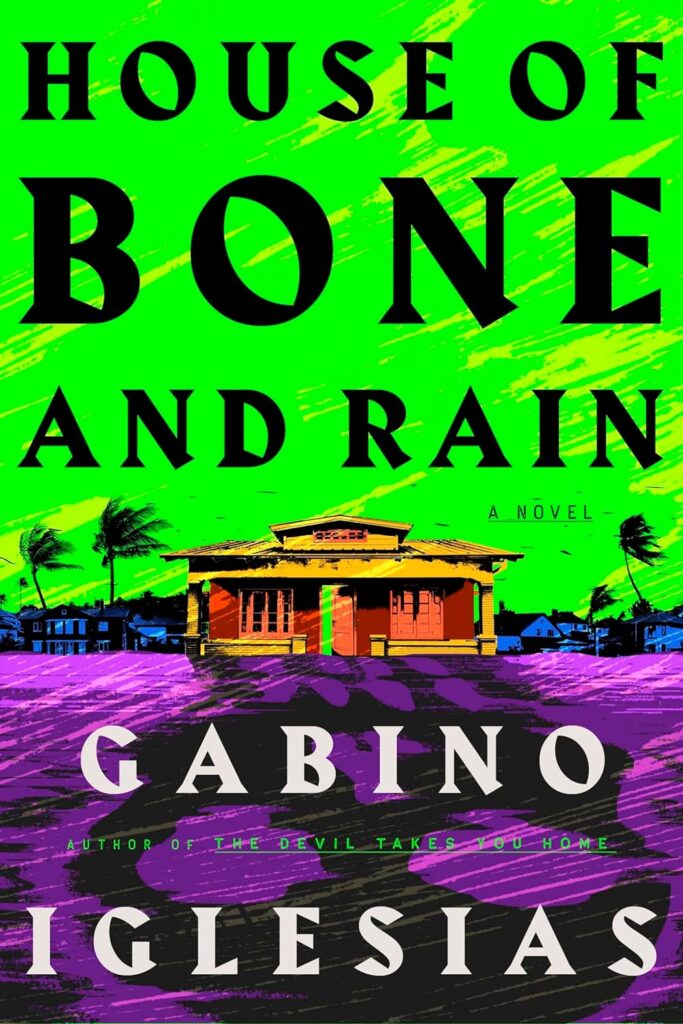
I’ve sat on reviewing this book for a couple of weeks. This isn’t because I didn’t like the book (I loved it), it’s because words about this book need to be thought out. House of Bone and Rain is wonderful horror writing, but it’s far more than that. Mr. Iglesias has managed to tuck a massive amount of social commentary into a novel about five pretty different teenage boys living in Puerto Rico seeking revenge while a hurricane is about to hit.
Now what I just wrote seems like a pretty standard plot approach, it’s the individual bits of it that make this so profound. Puerto Rico is a country with a fascinating culture and history. I won’t delve into to much here because that actually gives away some of the plot (I do hate spoilers), but there has always been a bit of an air of mystery surrounding the island.
As Bimbo and his friends seek out revenge against the biggest drug kingpin on the island, with a storm ready to strike, House of Bone and Rain begins it’s spiraling decent into chaos and madness.
My favorite thing about this novel is the timing between the supernatural and the hurricane. As Maria starts to swell, so do the strange things the boys encounter. This parallel really enhances the experience, and adds a significant degree of tension.
While I thought a couple of the side stories were just flavor to take a break from the insanity that the boys were undertaking, they turn out to fold right in and be some of the most significant aspects to what happens with Bimbo and his friends.
It’s not often that one finds harsh realities in a fantastical horror story, but Mr. Iglesias really delivers it here. The amount of grief and devotion just cannot be matched.
Bunny by Mona Awad

Oh how I wanted to fall in love with this one. It had all the right elements of multi-generational weirdness and it seemed to be hitting all the right buttons. Heathers meets The Craft in a polished Stepford Wives wrapper tied together with some gentle hints of depression, anxiety, and smattering of substance abuse and imposter syndrome.
Bunny, however, falls short.
It kicks off wonderfully. Samantha “Smacky” Mackey is a student out of place in her graduate program at the exclusive Warren University. Her cohort consists of her own dark self, and the four “Bunnies:” Cupcake, Creepy Doll, Vignette, and The Duchess.
The Bunnies, who pretty much exist as a single unit, spend Samantha’s first year ridiculing her and, basically, breaking her down before, seemingly, embracing her wholeheartedly in their second year.
I could go more into what transpires, but, if you are going to read this one, I would hate to ruin the little bit of joy the unfurling of the chaos provides before it all falls apart.
Bunny reminds me very much of a hill I often tried to skateboard on the university campus near where I grew up. It was steep, terrifying, and seemed like a damn good idea to attempt. The first part was exhilarating, the mid starts to get shaky, and, by the time you reach the home stretch, speed-wobbles throw all control out the window and you end up wiping out across the lawn.
I went back and read parts of this book multiple times just to make sure I didn’t miss something pivotal that seemed to be driving the wrap-up. Some tropes were flexed with deft skill, and others were just slapped in the readers face like a week-old mackerel.
This is one of those books that I’m glad I read because I want to talk about it with others who have read it. I’m all about unhinged fiction with a “weird” slant, but, at the very least, hold the story together.
The Long Way to a Small, Angry Planet (Wayfarers #1) by Becky Chambers
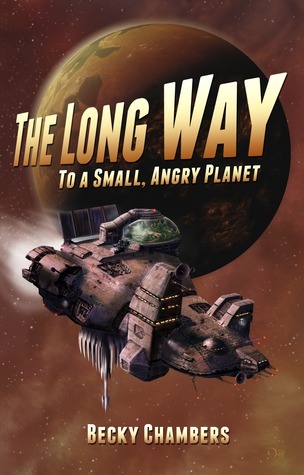
Typically I kick off my book reviews with a quick synopsis of the plot, the major characters, and a teaser into what to expect. This book, much like the others that Ms. Chambers has written, is different.
As someone who reads a whole hell of a lot of hard sci-fi as well as (probably) too much grimdark, there arises the need, sometimes, for palette cleansers: books that have impact, but don’t really provide a lot of stress on the reader while also remaining incredibly engaging. Kudos to Ms. Chambers for being a master of the genre.
The Long Way to a Small, Angry Planet starts out the story of Rosemary Harper. She’s a tad wrapped in intrigue, and, seemingly, attempting to escape a life into a new one of semi-anonymity. She joins the crew of the Wayfarer and gets thrown into a wildly unique, but calm group of crew members who also seem to operate as a defacto family while crazily boring wormholes through space to link distant planets to the galactic core.
Yes, all of the characters in this book are incredibly important, but I feel like it would be a disservice to the readers of this review to take away the small joy of being introduced to each one.
The thing I found most interesting about this book was the way each crew member deals with stressful situations and/or conflict. There are definitely some interesting quandaries in this book, and some very unique philosophies, politics, and moralities in play.
This is wildly simplistic, but I saw each little roadblock as a guided meditation. Every snapshot was going to have a nice little wrap-up, and a lesson learned. It’s just refreshing.
Now I’m on to book two in the series, and wondering if I maybe should space these out a bit to maximize the soothing effect.
Emily Wilde’s Map of the Otherlands (Emily Wilde #2) by Heather Fawcett
** This book was provided to me by NetGalley in exchange for a fair and honest review **
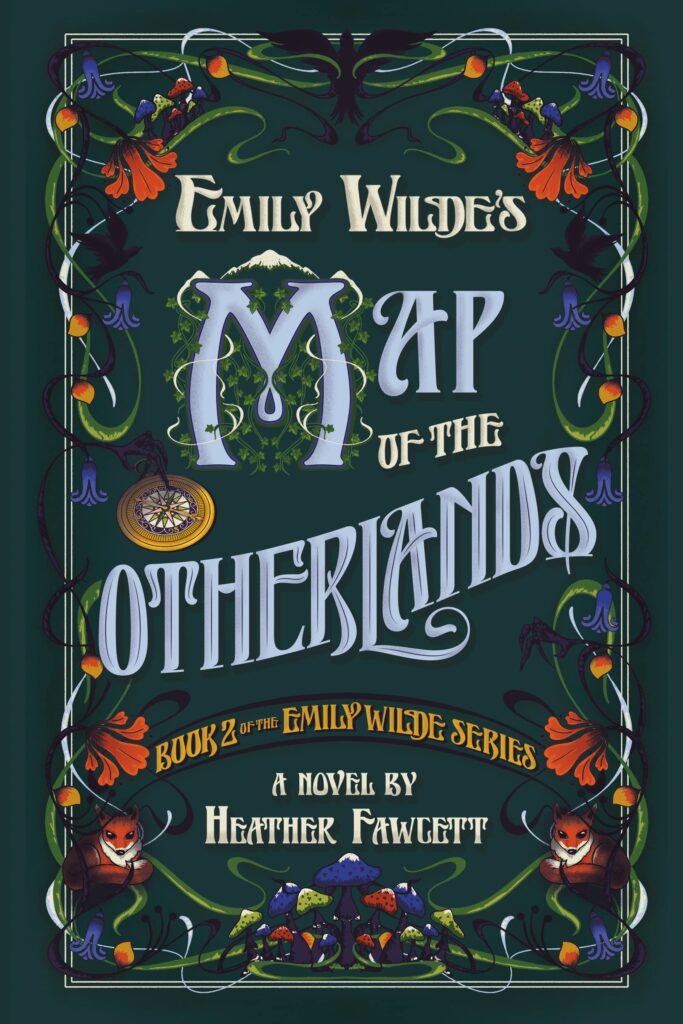
I’m not sure what it is about Ms. Fawcett’s Emily Wilde books that just make me stop everything else and rabidly consume them, but she is two for two, so far, in getting my full attention.
Emily Wilde is a dryadologist from Cambridge who, seemingly, is quickly becoming a pioneer in her field just through pure tenacity and grit. In her previous adventure, Professor Wilde managed to get herself betrothed to a Fae of the Winter realms, and, through help of fellow scholar Wendell Bambleby, escaped.
In this next chapter, Emily is working on a sort of atlas of the faerie lands when she and Bambleby learn that Bambleby’s step-mother is trying to have him killed. If you haven’t read the first book, then you don’t know that Wendell Bambleby is actually a faerie king in exile, and quite besotted with one Miss Emily Wilde.
In order to set things straight, Wendell and Emily must find one of the many doors to Wendell’s former realm, and attempt to set things straight with dearest step-mother before anyone ends up deceased prematurely.
this plan, Emily and Wendell plan to set out to the Austrian Alps to do this, but are interrupted in their plans by an attack by assassins at Cambridge in front of their department head — Dr. Rose — and Emily’s niece/assistant: Ariadne.
Now this quad is all set to head to the Alps to find this doorway: a simple plan when anyone else but Emily and Wendell would be involved.
Needless to say, there are a ton of mysteries, a wide variety of Fair Folk, some mystery, some intrigue, a wee bit of violence, and even a smattering of romance.
Ms. Fawcett is just extraordinary at building amazing world of both the fantastic and mundane, and she flexes that muscle liberally in this gem. I quite literally consumed over half this novel in one overnight session while sitting in a cabin in the woods, and it was perfection.
One of the things that makes this book so approachable is that it puts the reader in a very comfortable spot to observe what is happening without being condescending or trite. Yes, this novel has a ton of footnotes in what can only be described as one of the most endearing traits that Emily has in attempting to separate the academic from the real, and the bluntness adds a degree of humor that I greatly appreciate.
I, for one, cannot wait for the further adventures of Emily and Wendell. Hopefully I won’t have to wait long.
Lore by Alexandra Bracken

Been on a bit of a mythology kick lately, and this title was recommended to me, so I took a swing.
Lore Perseous is the last of her line. Her parents and sisters were brutally murdered by a rival line at the tail end of the Agon: a “tournament” of sorts that happens every seven years wherein descendants of ancient bloodlines hunt nine of the Greek gods in mortal form for a week. If someone is able to kill a god, they get their immortality and power.
After her family’s death, Lore ran away from the Agon and started over in New York City: hiding from everyone in her previous life.
Here it is Agon time again, and, as luck would have it, it is in New York City. Determined to stay out of it, Lore keeps doing what she’s always done, but is approached by her old training partner, Castor, and then a very wounded Athena shows up on her doorstep.
Lore can run no more.
By and large I enjoyed this book, and it was a fast and easy read. There were some stumbles in the worldbuilding, but nothing Earth shattering to note.
The action builds up, and the intrigue gets deeper and deeper. There are so many more conspiracies than anyone would have imagined, and more and more of Lore’s life gets dragged into the fray.
Then I got to the end, and was so incredibly disappointed. In a matter of paragraphs, Ms. Bracken took this well-developed story, and quite literally shat on the effort of the characters. Yeah, I get the intentionality of what happened, but that was a serious groaner. Yes, this is a Disney Hyperion released book, but it could have retained a little edge until close.
Tender is the Flesh by Agustina Bazterrica
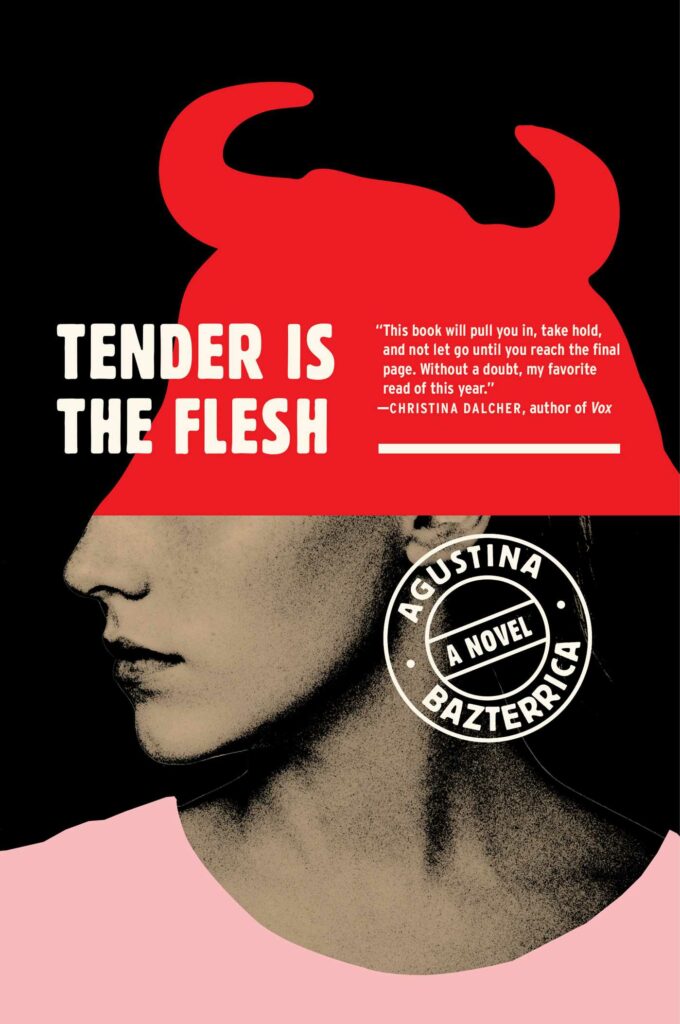
A warning before I get going: this book is profound but incredibly brutal.
In a world where all meat (and all animals) have become poisonous to humans thanks to a virus, humans are now bred to be the primary source of meat. “Special meat” if you will.
Marcos, the primary character, has not had the best go of things lately. His child died, his wife left him, and his father is in a care home suffering from dementia.
Then, out of the blue, Marcos is gifted a female “head” of the highest quality. Disenfranchised by what the world has become, and how his life has spiraled, Marcos begins treating this “head” more and more like a person.
I’m not going to lie. While this book is insanely short, it has probably been one of the hardest things I’ve read in years. The accepted brutality is just so nonchalant, and that really makes it a very hard pill to swallow. The writing is just beautiful — especially considering this is a book translated from Spanish — but the subject matter, along with the day-to-day descriptions of humans as livestock really sinks in.
That doesn’t mean I didn’t enjoy the book. I love the hell out of this, and I think it’s something that everyone should read. If anything, I think it leans towards sympathetic while the society went very brutal.
The ending alone is worth the ride.
Lot Lizards by Ryan Hyatt
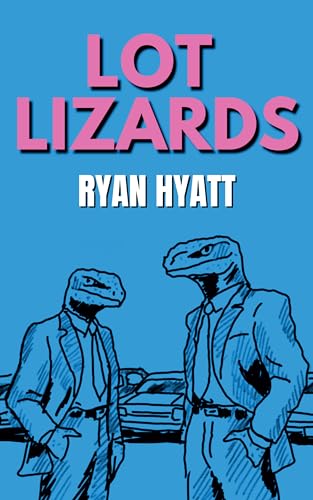
One of my favorite creators has a new piece of short fiction in the “comic horror” genre (his words), and it definitely delivers. Lot Lizards starts out with a couple of cops checking out a used car lot where a call has come in from an outside party that some shenanigans have taken place.
Per usual, Mr. Hyatt excels at setting a concise scene without letting it take up valuable real estate for a short work. I’ve found that some authors want to set aside everything to set the stage, but the ones who engage me best, roll that right into the narration like a vignette from Outer Limits.
Lot Lizards delivers and it delivers fast. Things go from a calm oddity to pure mayhem starting on page ten with a very ironic “We are one thirty-eight.” (the pun was definitely not lost on me)
What I love about this kind of fiction — especially the gems that Mr. Hyatt has shared with me over the last couple of years — is that it is exactly the snapshot needed at the time of reading. Sure, Mr. Hyatt plays within the realm of his Terrafide universe, and this story will really pull in more readers curious to know more about the kiaskis that keep getting mentioned.
Regardless, Lot Lizards is a fun story with some serious visceral action. It has the baddies, the big bad, the authorities, and tragic foils, and vigilante heroes all in the span of about fifty-four pages. It was exactly what I needed while scarfing down my sandwich at lunch.
Like I’ve said before, life is too short to not read short fiction. It’s plentiful, and there a lot of really good stuff out there. At the very least, if you didn’t like it, you didn’t waste too much time.








